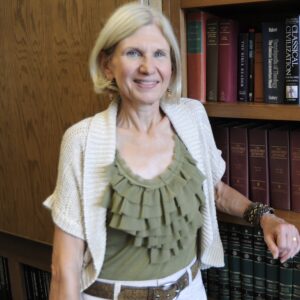
Liberal or Conservative? Traditional or Progressive? None and All of the Above
American media has only just begun to speculate about the political leanings of Pope Leo XIV as they comb through his social media posts. Just as they tried to fit Pope Francis into the binary categories of conservative/liberal and traditional/progressive, so too will they with Leo. Such analysis so often fails because it rarely takes seriously what animates their lives: proclaiming the good news of Jesus Christ. Gospel means good news, and the four Gospels are these men’s principal source of guidance. To understand Francis’s words and deeds, we have to take seriously that he prayed with these Gospels for his entire adult life. We can say the same about Leo XIV. Neither prioritizes whether their positions align with liberal or conservative positions; rather both worry whether they are being Jesus’s faithful disciples.
Here are just a few examples of what challenges them when they pray with the Gospels. In Luke, Jesus announces his ministry quoting from the prophet Isaiah. The Spirit has sent him to proclaim the following: good news to the poor, the release of prisoners, the blind seeing, and the oppressed being liberated (Luke 4: 14-22). Francis’s relentless insistence that we remember and care for the poor comes from his obedience to gospel passages like these. Before his election, Robert Prevost lived out this ministry of Jesus among the Peruvian people whom he greeted in his first address as Pope Leo XIV. In the current political landscape, liberals and conservatives fall short when measured by the Gospel’s standard.
Francis and Leo have meditated on and preached from Matthew’s Sermon on the Mount many times since their ordination. The Sermon opens with the Beatitudes where Jesus identifies those blessed in his kingdom. He names the poor, the mourner, the meek, the merciful, the pure of heart, the peacemaker, the one hungry and thirsty for righteousness, and the one persecuted for the sake of righteousness. In his exhortation on holiness, Rejoice and Be Glad, Pope Francis describes the Beatitudes as ”the Christian’s identity card” (63), even as “the world pushes us towards another way of living” (65). He encourages Christians to be open to the Holy Spirit and to “allow [Jesus’s] words to unsettle us, to challenge us and to demand a real change in the way we live” (66).[i] In light of the Beatitudes, the liberal-conservative binary dissolves and the traditional melds with the so-called “progressive.”
The American media notes every time that Pope Francis and Pope Leo speak on behalf of migrants and refugees. This defense should come as no surprise when one turns to Matthew 25 and reads Jesus’s parable about the final judgment. A king, aka Jesus, welcomes into his kingdom those who, unbeknownst to them, tended to him when they tended to the hungry and thirsty, clothed the naked, welcomed the stranger, cared for the ill, visited prisoners. Those who failed to show mercy end up in the kingdom where demonic suffering reigns eternally. Reflecting on this passage in 2016 during the extraordinary jubilee year of mercy, Pope Francis warned: “The lesson of Jesus that we have heard does not allow escape routes.”[ii] And Leo XIV, in his first message told the world, “we want to be a Church of the Synod, a Church that walks, a Church that always seeks peace, that always seeks charity, that always seeks to be close, especially to those who suffer.”[iii] Like Francis, Leo recognizes there is no escape route from tending to the suffering.
Jesus demands even more from his disciples than these works of mercy. In the Sermon on the Mount, he calls them to be light and salt for the world and challenges them in all manner of living from turning the other cheek and loving their enemies to avoiding even lustful thoughts. These demands culminate in the Torah’s commandment: love God with one’s entire being, to which Jesus joins love the neighbor as the self. In his parables, Jesus identifies the neighbor as the one who shows compassion exemplified in the Good Samaritan and the father to his prodigal son as well as his resentful elder son.
Like the first disciples, most Christians in every age fall short of these demands. Pope Francis meant it when he declared himself a sinner in need of God’s mercy. Clearly, contemporary Christians face challenges that require creative fidelity from attending to the climate crisis to understanding the complexities of sexual and gender identity. An often cited example of Francis’s “liberal agenda” is “who am I to judge?” Rarely is Francis’s entire comment quoted. He said, “If a person is gay and seeks God and has good will, who am I to judge?” In this response, Francis gives witness to two dimensions of the Church’s life. The first is to embrace every person because no one is excluded from seeking and receiving the love and mercy of God. Echoing Francis, Leo XIV calls for “a Church that builds bridges, dialogue, always open to receive like this square with its open arms, all, all who need our charity, our presence, dialogue and love.”[iv] Yet, implicit in Francis’s response is the challenge to live in the demanding way of discipleship: loving God with one’s whole being and loving the neighbor as one’s self. To borrow from Paul, in Christ, there is neither conservative nor liberal, traditional nor progressive. Or as Leo XIV declares in the motto of his papacy: In illo uno unum”: “In the one Christ, we are one”.
Notes & Bibliography
[i] https://www.vatican.va/content/francesco/en/apost_exhortations/documents/papa-francesco_esortazione-ap_20180319_gaudete-et-exsultate.html
[ii] https://www.vatican.va/content/francesco/en/audiences/2016/documents/papa-francesco_20160630_udienza-giubilare.html
[iii] https://www.npr.org/2025/05/08/nx-s1-5392318/transcript-pope-leo-xiv-speech
[iv] https://www.npr.org/2025/05/08/nx-s1-5392318/transcript-pope-leo-xiv-speech
Leave a Reply